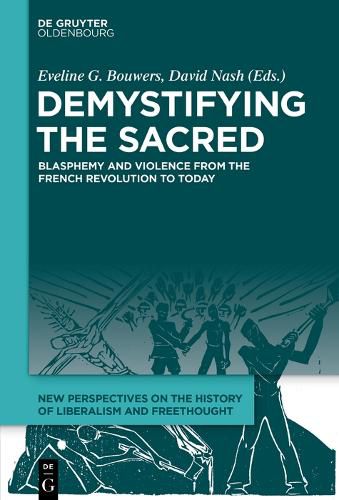Readings Newsletter
Become a Readings Member to make your shopping experience even easier.
Sign in or sign up for free!
You’re not far away from qualifying for FREE standard shipping within Australia
You’ve qualified for FREE standard shipping within Australia
The cart is loading…






Demystifying the Sacred: Blasphemy and Violence from the French Revolution to Today offers a much-needed analysis of a subject that historians have largely ignored, yet that has considerable relevance for today’s world: the powerful connection that exists between offences against the sacred and different forms of violence. Drawing on cases from revolutionary France to the Russia of Vladimir Putin, the international authors probe the nature and agency of local blasphemy accusations, the historical and legal framework in which they were expressed and the violence, both physical and symbolic, accompanying them. In doing so, the volume reveals how cultures of blasphemy, and related acts of heresy, apostasy and sacrilege, were a companion to or acted as a trigger for physical action but also a form of how violence was experienced. More generally, it shows the importance of religious sensibilities in modern society and the violent potential contained in criticism or ridicule of the sacred and secular alike.
$9.00 standard shipping within Australia
FREE standard shipping within Australia for orders over $100.00
Express & International shipping calculated at checkout
Stock availability can be subject to change without notice. We recommend calling the shop or contacting our online team to check availability of low stock items. Please see our Shopping Online page for more details.
Demystifying the Sacred: Blasphemy and Violence from the French Revolution to Today offers a much-needed analysis of a subject that historians have largely ignored, yet that has considerable relevance for today’s world: the powerful connection that exists between offences against the sacred and different forms of violence. Drawing on cases from revolutionary France to the Russia of Vladimir Putin, the international authors probe the nature and agency of local blasphemy accusations, the historical and legal framework in which they were expressed and the violence, both physical and symbolic, accompanying them. In doing so, the volume reveals how cultures of blasphemy, and related acts of heresy, apostasy and sacrilege, were a companion to or acted as a trigger for physical action but also a form of how violence was experienced. More generally, it shows the importance of religious sensibilities in modern society and the violent potential contained in criticism or ridicule of the sacred and secular alike.